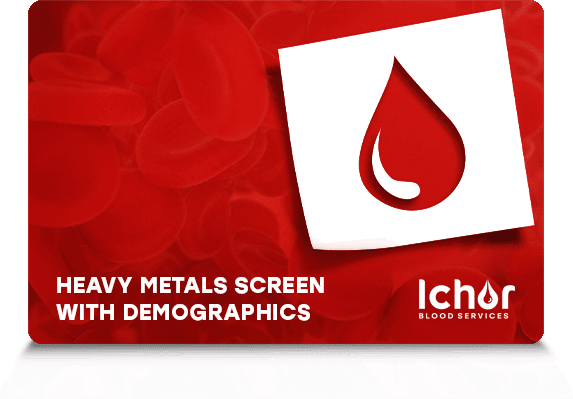
What Is It?
HMDB, also known as Heavy Metals Screen with Demographics, Blood is a blood test used to detect exposure to arsenic, lead, cadmium, and mercury. These are potentially harmful metals that can be found naturally in foods, medicines, water, and in our environments. Heavy metal exposure can result from breathing in particles, ingestion, or through skin absorption. This test can confirm exposure and determine the levels present in your blood.
Who Is It For?
Your physician may recommend HMDB screening if you suspect you have been exposed to these harmful metals, or if you are exhibiting symptoms of exposure such as:
- Nausea, vomiting, diarrhea, and stomach pain
- Chills
- Weakness
- Shortness of breath
- Tingling or numbness in the hands and/or feet
Why Is It Important?
Exposure to arsenic, lead, cadmium, and mercury can lead to heavy metal poisoning resulting in serious health problems. Depending on the type of metal and the level of it in your system, you could experience organ damage, compromised thinking and memory processes, behavioural changes, and even permanent brain damage. If avoiding the source of exposure does not significantly reduce the metal level in your blood, your doctor may recommend treatment such as chelation therapy. This treatment uses drugs that bind to metals in your blood and is then expelled through your urine.
